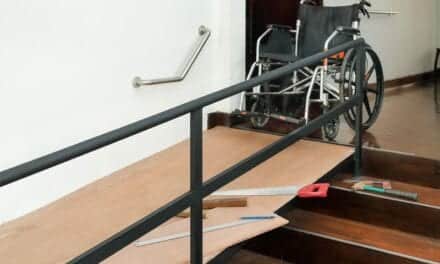The Centers for Medicare & Medicaid Services (CMS) has issued a final rule for home health that furthers CMS’ strategic commitment to drive innovation that promotes comprehensive, person-centered care for older adults and people with disabilities by accelerating the shift from paying for home health services based on volume, to a system that incentivizes value and quality.
The final rule will also strengthen CMS’ data collection efforts to identify and address health disparities and use of care among people who are dually eligible for Medicare and Medicaid, people with disabilities, people who identify as LGBTQ+, religious minorities, people who live in rural areas, and people otherwise adversely affected by persistent poverty or inequality.
The Calendar Year 2022 Home Health Prospective Payment System (PPS) Final Rule addresses challenges facing Medicare beneficiaries who receive health care at home. The final rule finalizes nationwide expansion of the successful Home Health Value-Based Purchasing (HHVBP) Model to incentivize quality of care improvements, a media release from CMS notes.
“CMS is committed to helping people get the care they need, where they need it,” said CMS Administrator Chiquita Brooks-LaSure. “This final rule will improve the delivery of home health services for people with Medicare. It will also improve our data collection efforts, helping us to identify health disparities and advance health equity.”
The CMS Innovation Center (Innovation Center) launched the original HHVBP Model on January 1, 2016, to determine whether CMS could improve the quality and delivery of home health care services to people with Medicare by offering financial incentives to providers that offer better quality of care with greater efficiency. The original HHVBP Model comprised all Medicare-certified home health agencies (HHAs) providing services across nine randomly selected states.
The Third Annual Evaluation Report of the participants’ performance from 2016-2018 showed an average 4.6% improvement in HHAs’ quality scores and an average annual savings of $141 million to Medicare.
The final policies promulgated in this rule expand the HHVBP Model nationally, with the first performance year beginning January 1, 2023. The HHVBP Model is one of four Innovation Center models that have met the requirements to be expanded in duration and scope since 2010. Starting in 2025, CMS will adjust fee-for-service payments to Medicare-certified HHAs based on the quality of care provided to beneficiaries during the CY 2023 performance year.
Throughout 2022, CMS will provide technical assistance to HHAs to ensure they understand how performance will be assessed. Overall, these policies support the Agency’s commitment to advancing value-based care by providing incentives for HHAs to improve the beneficiary experience and quality of care.
Additionally, the final rule will advance CMS’ coordination of care efforts through improvements to the Home Health Quality Reporting Program, Long-Term Care Hospital Quality Reporting Program, and Inpatient Rehabilitation Facility Quality Reporting Program and finalizes the mandatory COVID-19 reporting requirements for Long Term Care facilities (nursing homes) established as a part of the May 2020 and May 2021 Interim Final Rules beyond the current COVID-19 public health emergency (PHE) until December 31, 2024. The rule removes or replaces several quality measures to reduce burden and increase focus on patient outcomes.
CMS is also finalizing its proposals to begin collecting data on two measures promoting coordination of care in the Home Health Quality Reporting Program effective January 1, 2023 as well as measures under Long-Term Care Hospital Quality Reporting Program and Inpatient Rehabilitation Quality Reporting Program effective October 1, 2022. The effective dates position the agency to support the recent Executive Order 13985 of January 20, 2021, Advancing Racial Equity and Support for Underserved Communities Through the Federal Government.
Finally, this rule implements provisions of the Consolidated Appropriations Act, 2021 that establish survey and enforcement requirements for hospice programs serving Medicare beneficiaries. These provisions will require the use of multidisciplinary survey teams, prohibition of surveyor conflicts of interest, and expansion of surveyor training to include accrediting organizations (AOs). The provisions also establish a hospice program complaint hotline and create the authority for CMS to impose enforcement remedies for noncompliant hospice programs. These changes will strengthen oversight, enhance enforcement, and establish consistent and transparent survey requirements in hospice care.
[Source: CMS]





